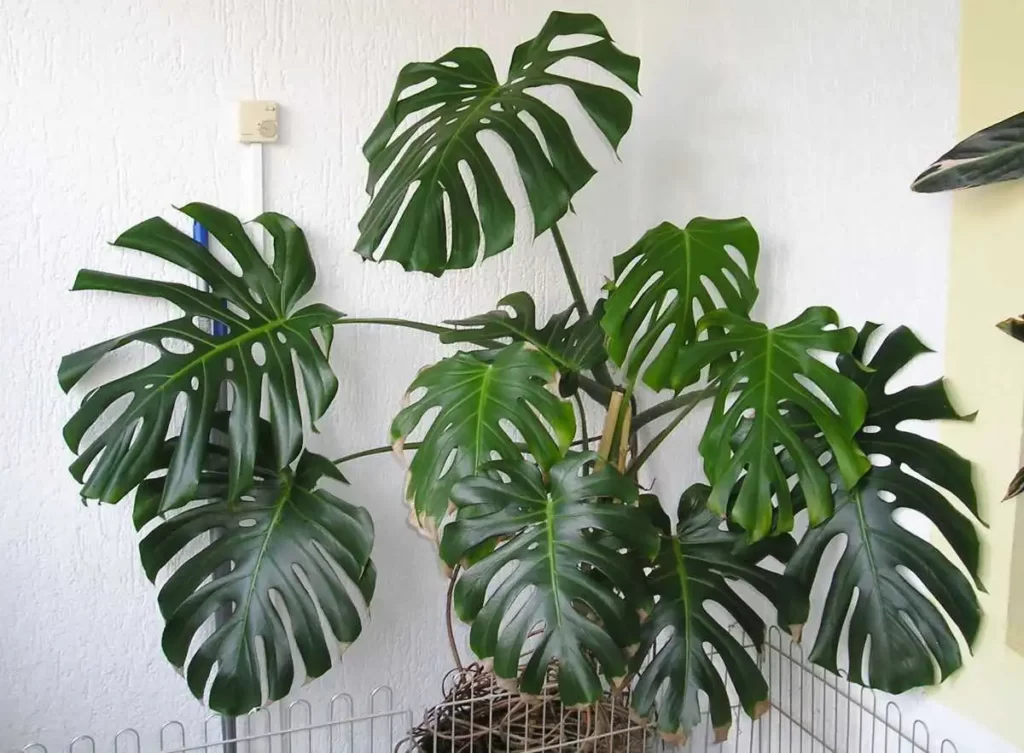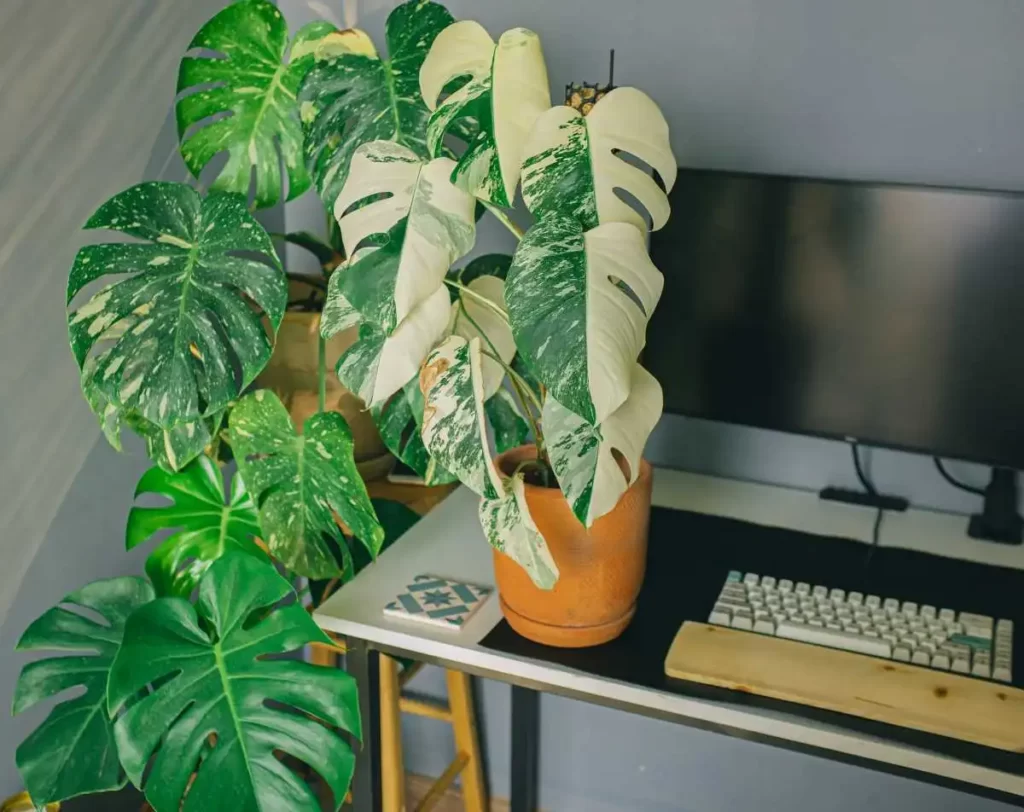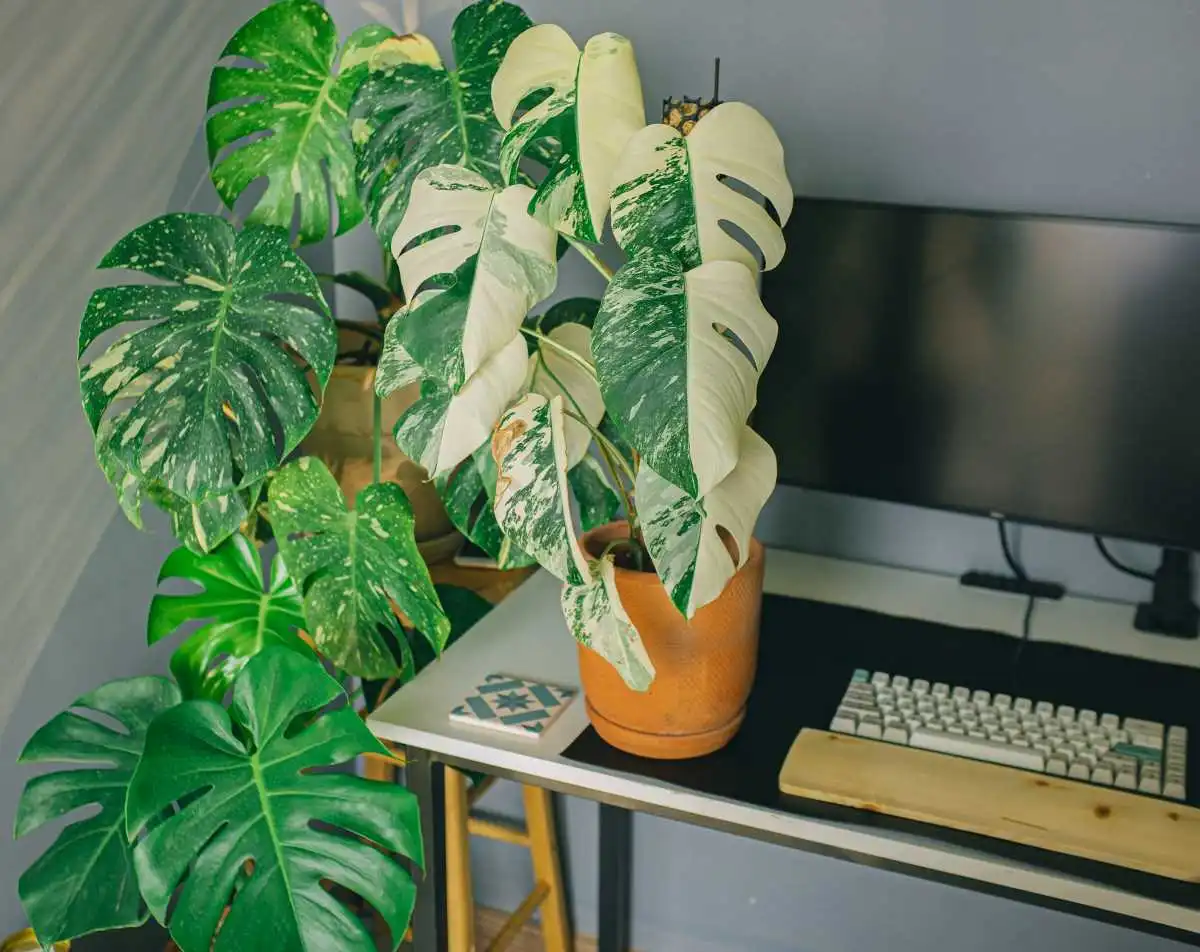Plants have an uncanny ability to bring life and vibrancy into any space they inhabit.
Among the vast array of botanical beauties, the Monstera Deliciosa stands tall, commanding attention with its distinctive, hole-riddled leaves.
Commonly known as the Swiss Cheese Plant due to its unique foliage, this tropical species has garnered widespread popularity among plant enthusiasts and interior decorators alike.
However, beyond its aesthetic appeal and air-purifying qualities, the Monstera Deliciosa carries both benefits and disadvantages that warrant exploration.
What is Monstera Deliciosa?

Originating from the tropical rainforests of Central America, the Monstera Deliciosa belongs to the Araceae family.
Its name, derived from Latin, aptly describes the monstrous size it can achieve when growing in its natural habitat.
The plant features glossy, heart-shaped leaves that develop iconic holes or splits as they mature, giving it a visually striking appearance.
Benefits of Cultivating a Monstera Plant
1. Aesthetic Appeal
The Monstera’s allure lies in its visually captivating appearance. The unique fenestrations or “swiss cheese” holes in its leaves make it an exquisite ornamental piece.
These holes are not just an aesthetic feature but also serve a functional purpose, allowing the leaves to withstand heavy rainfall in its natural habitat by letting the wind pass through, preventing damage.
Moreover, its lush green leaves, when placed against a contrasting background or combined with various textures and colors, can significantly enhance the visual appeal of any space.
Its versatility in adapting to different interior styles, whether minimalist, bohemian, or modern, further adds to its charm.
2. Air Purification
The Monstera Deliciosa is an excellent air purifier. Its large, broad leaves provide an extensive surface area for absorbing airborne toxins commonly found in indoor environments, such as formaldehyde and benzene.
By absorbing these harmful compounds, the plant contributes to improving air quality, creating a healthier atmosphere for occupants.
This quality makes it a popular choice for offices, homes, and other indoor spaces where air circulation might be limited.
3. Low Maintenance
One of the most appealing aspects of the Monstera plant is its resilience and ease of care.
It is relatively forgiving and can tolerate occasional neglect, making it an ideal choice for busy individuals or those new to plant care.
Its adaptability to various light conditions, from moderate to bright indirect sunlight, makes it suitable for different indoor environments.
Additionally, its watering needs are minimal, requiring only moderate moisture levels to thrive. With proper care, the Monstera can flourish and continue to beautify spaces for years.
4. Versatility in Decor
The Monstera’s versatility in styling adds a touch of sophistication to interior decor.
Whether placed in a hanging basket, displayed in a decorative pot on a stand, or allowed to climb up a moss pole or trellis, this plant adapts to various setups, offering flexibility in design.
Its ability to grow both horizontally and vertically allows individuals to showcase their creativity and personalize their living or working spaces.
Incorporating a Monstera Deliciosa into interior decor not only adds a natural and vibrant element but also introduces an exotic touch, transforming mundane spaces into lively and inviting areas.
By understanding and appreciating these diverse benefits, plant enthusiasts can make informed decisions about integrating the Monstera Deliciosa into their surroundings, ensuring both aesthetic enhancement and functional contributions to indoor environments.
Monstera Plant Disadvantages

Monstera Deliciosa presents numerous advantages, but it is essential to consider its drawbacks before welcoming it into your living space.
1. Toxicity
One significant concern associated with Monstera plants is their toxicity. The plant contains calcium oxalate crystals, which can cause irritation, swelling, and discomfort if ingested by pets or humans.
Therefore, it’s crucial to exercise caution and keep the plant out of reach of children and curious pets.
In households with small children or pets prone to exploring, choosing pet-friendly, non-toxic plants might be a safer option.
Read: Are Monstera Toxic to Cats & Dogs?
2. Space Requirements
While the Monstera’s growth rate isn’t rapid, it can eventually become sizeable, requiring ample space to thrive.
As the plant matures, its vines can spread out extensively, necessitating regular pruning and maintenance to prevent it from overtaking its surroundings.
Individuals living in smaller spaces or those looking for a plant that doesn’t demand frequent pruning might find the Monstera’s space requirements challenging.
3. Slow Growth Rate
Patience is key when growing a Monstera plant. While it’s a resilient species, its growth rate tends to be slow, especially in indoor conditions.
Expecting rapid growth or the emergence of new leaves may not be realistic, and those seeking a plant that rapidly fills space might find this aspect of the Monstera disappointing.
4. Potential Pests
Like many indoor plants, the Monstera Deliciosa is susceptible to various pests such as spider mites, mealybugs, and scale insects.
These pests can damage the plant by feeding on its leaves and stems, affecting its overall health.
Regular inspection, prompt treatment, and maintaining good plant hygiene are essential to prevent pest infestations and preserve the plant’s vitality.
Conclusion
While the Monstera Deliciosa boasts numerous advantages, including aesthetic appeal, air purification, and ease of care, potential drawbacks must be considered before introducing it into a living or working space.
Its toxicity, space requirements, slow growth rate, and susceptibility to pests might pose challenges for some individuals.
However, by understanding these disadvantages and taking proactive measures, such as placing the plant out of reach of pets and children, managing its growth through regular pruning, exercising patience with its growth rate, and implementing pest prevention measures, enthusiasts can mitigate these challenges.
Ultimately, while the Monstera Deliciosa may have its downsides, its striking appearance, air-purifying capabilities, and adaptability to various décor styles make it a beloved choice for many plant enthusiasts willing to navigate and address these potential concerns.
Related FAQs:
Are Monstera plants toxic to pets?
Yes, Monstera plants contain calcium oxalate crystals, which can cause irritation and discomfort if ingested by pets. It’s essential to keep Monstera plants out of reach of animals to avoid potential health issues.
How fast does a Monstera plant grow?
Monstera plants are known for their slow growth rate, especially in indoor conditions. While they are hardy, significant growth and the emergence of new leaves might take time, requiring patience from plant owners.
What are the space requirements for a Monstera plant?
Monstera plants can grow quite large over time, requiring ample space to thrive. Their vines can spread extensively, necessitating regular pruning and maintenance to prevent them from overpowering their surroundings.
How can I prevent pests from infesting my Monstera plant?
Regular inspection and maintaining good plant hygiene are crucial to prevent pest infestations in Monstera plants. Keeping the plant clean, checking for signs of pests, and promptly treating any infestations are effective preventive measures.
Are Monstera plants good for improving indoor air quality?
Yes, Monstera plants are excellent air purifiers. Their large leaves help absorb toxins like formaldehyde and benzene, contributing to better indoor air quality.
What light conditions do Monstera plants require?
Monstera plants thrive in moderate to bright indirect sunlight. They can adapt to various light conditions, making them suitable for different indoor environments.
How often should I water my Monstera plant?
Monstera plants prefer moderate watering. Watering should be done when the top inch or so of the soil is dry. Overwatering can lead to root rot, so it’s essential to allow the soil to dry out between waterings.
Can I use a Monstera plant for different types of interior décor?
Absolutely! Monstera plants are versatile and can be used in various interior décor styles. Whether placed in hanging baskets, decorative pots, or allowed to climb a moss pole, they add an exotic touch to any space.

